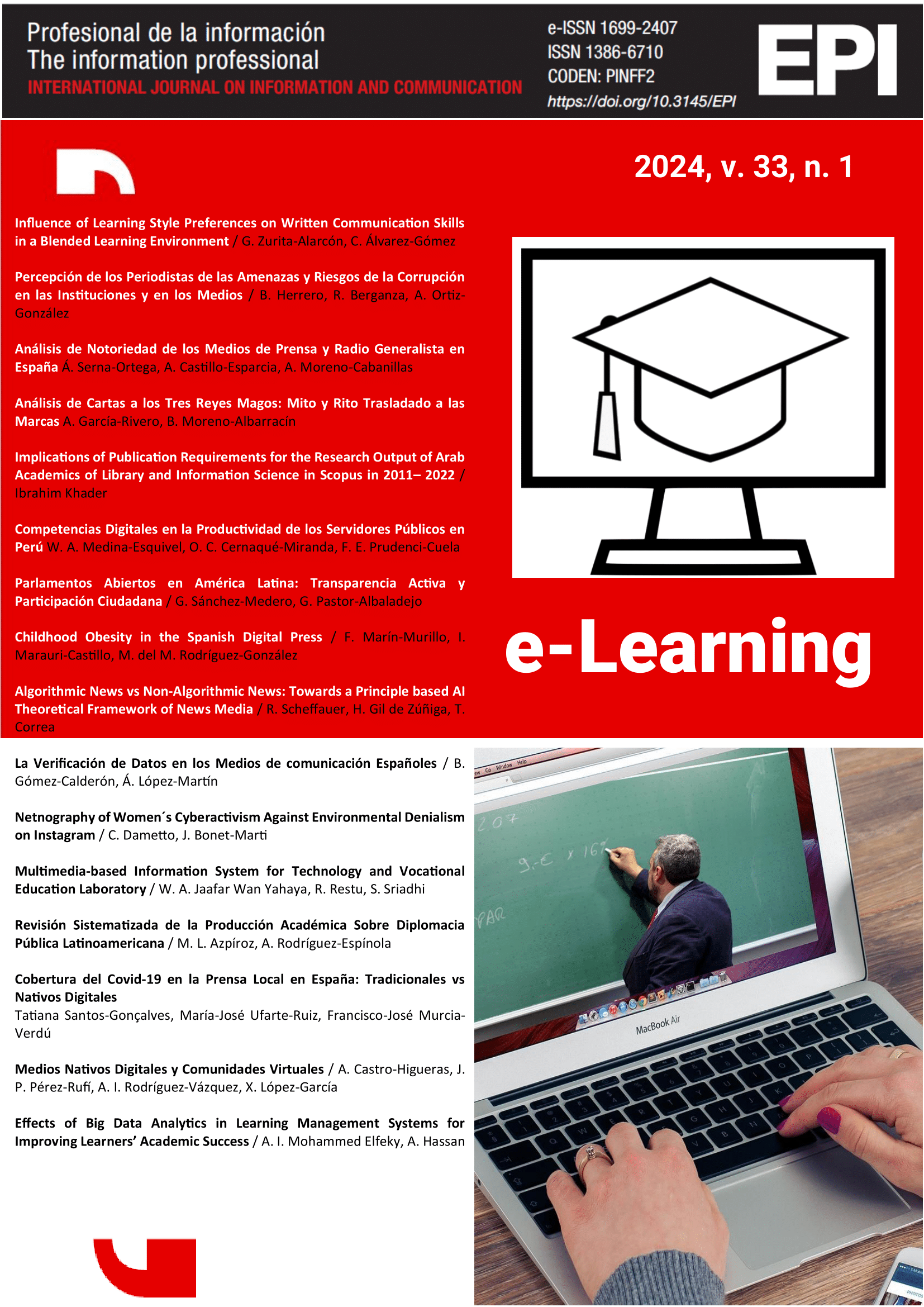The Role of Disinformation in Modern Age: An Impact on Chinese Politics
DOI:
https://doi.org/10.3145/epi.2024.0021Resumen
A substantial body of research has been devoted to analyzing the factors that influence people's change in political behavior through the use of various media. Nevertheless, the phenomenon of political opinion and attitude change within the realms of online and social media has been relatively overlooked. By developing theoretical model and evaluating empirically a structural equation model that establishes a connection between online and social media, political disinformation, and media content changes, this study attempts to cast light on this body of work. By utilizing autoregressive causal tests conducted on panel data from three phases of the China Survey collected in 2022 and 2023, our findings suggest that political disinformation, online media, and social media are all positive predictors of changes in the political attitudes of individuals. Moreover, empirical evidence from structural equation tests demonstrates that disinformation is more likely to be disseminated through social media and online news platforms. This, in turn, facilitates political change in the online media domain by predicting greater levels of political transformation. Additional recommendations for future direction and limitations are explained in this research.
Descargas
Downloads
Publicado
Número
Sección
License
Copyright (c) 2024 Profesional de la información

This work is licensed under a Creative Commons Attribution 4.0 International License.
Condiciones de difusión de los artículos una vez son publicados
Los autores pueden publicitar libremente sus artículos en webs, redes sociales y repositorios
Deberán respetarse sin embargo, las siguientes condiciones:
- Solo deberá hacerse pública la versión editorial. Rogamos que no se publiquen preprints, postprints o pruebas de imprenta.
- Junto con esa copia ha de incluirse una mención específica de la publicación en la que ha aparecido el texto, añadiendo además un enlace clicable a la URL: http://revista.profesionaldelainformacion.com
La revista Profesional de la información ofrece los artículos en acceso abierto con una licencia Creative Commons BY.


